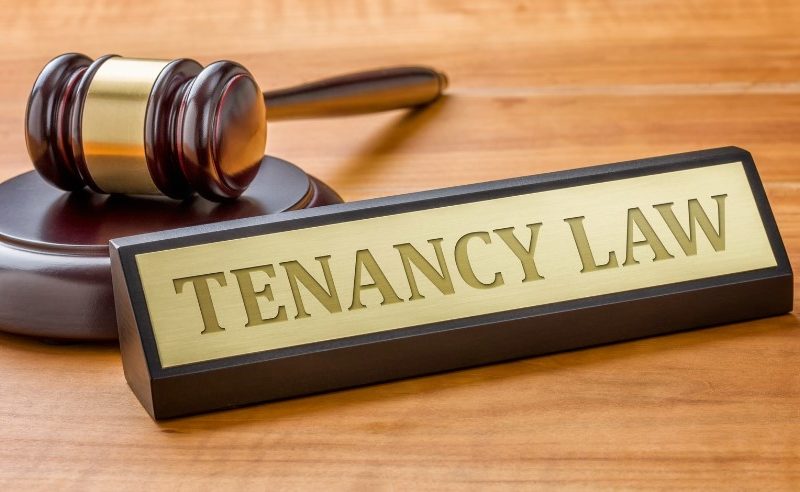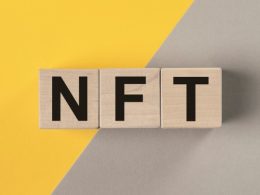Are you a landlord or tenant in British Columbia? If so, it’s crucial to understand the Residential Tenancy Act (RTA). This legislation governs all aspects of residential tenancies and sets out landlords’ and tenants’ rights and obligations. Whether you’re renting out a property or looking for a place to call home, knowing your rights under the RTA can help prevent disputes and ensure smooth tenancy.
In this blog post, we’ll explore everything you need to know about the Residential Tenancy Act in B.C. – from its purpose to key provisions that affect landlords and tenants alike. So let’s dive in!
What is the Residential Tenancy Act in B.C.?
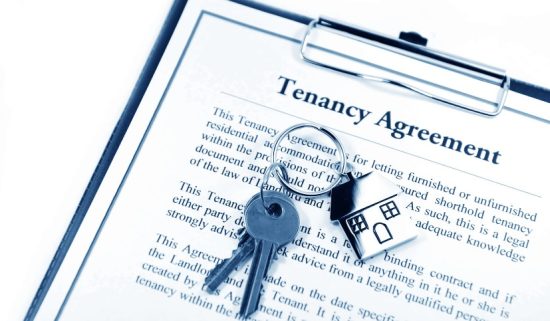
The Residential Tenancy Act (RTA) is the law that governs most residential tenancy agreements in British Columbia. The RTA sets out the rights and responsibilities of landlords and tenants and establishes procedures for resolving disputes.
The RTA applies to all residential tenancy agreements, regardless of whether they are written or oral and regardless of whether the tenant is paying rent or not. However, there are some exceptions to the RTA, such as tenancies that are governed by other legislation (e.g., manufactured home sites, co-ops, and certain types of student housing).
Landlords and tenants must comply with the provisions of the RTA. If either party does not comply with the RTA, they may be subject to legal action.
The Residential Tenancy Branch (RTB) administers the RTA, which is part of the Ministry of Municipal Affairs and Housing. The RTB is responsible for enforcing the RTA, mediating disputes between landlords and tenants, and providing information and education about the Act.
Overview of Landlord and Tenant’s Rights and Responsibilities Under the RTA
The Residential Tenancy Act (RTA) establishes contractual obligations and rights for landlords and tenants. As a landlord, you are responsible for maintaining the property in a good state of repair, ensuring that there are no health or safety hazards, and providing your tenants with a written tenancy agreement. You also have the right to collect rent from your tenants and to evict them if they breach their tenancy agreement.
As a tenant, you are responsible for paying rent on time, keeping the property clean and tidy, and not causing any damage to the property. You also have the right to live in a safe and clean environment, to receive a written tenancy agreement from your landlord, and to challenge any illegal charges made by your landlord.
What Rental Agreements Must Include?
Every tenancy agreement in B.C. must include the following:
- The names of the landlord and tenant(s)
- The address of the rental unit
- The date the tenancy agreement starts and ends
- The amount of rent, how often it is paid, and when it is due
- If the rent includes utilities, how much will each utility cost
- Any rules or conditions about smoking or pets on the property
- A statement that the Residential Tenancy Act applies to the tenancy agreement
If the tenant is under 19 years old, a parent or guardian must also sign the tenancy agreement.
Security Deposits and Rent Increases
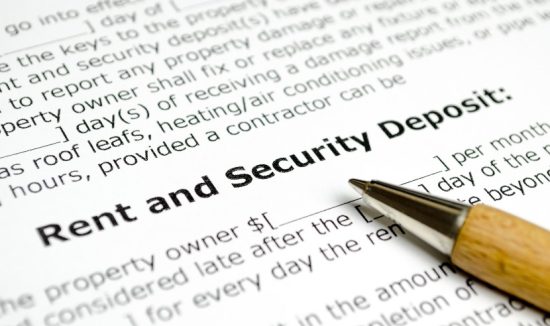
A security deposit is a money a tenant gives their landlord when they first move in. The landlord can use this money if the tenant damages the rental unit or doesn’t pay their rent. British Columbia’s maximum security deposit is half a month’s rent. For example, if your monthly rent is $800, your security deposit can be no more than $400. Landlords can only increase rent once every 12 months and must give at least three months’ notice before doing so.
Repairs, Maintenance, and Entry to Rental Units
The Residential Tenancy Act (RTA) is the law that governs most residential rental agreements in British Columbia. The RTA sets out the rights and responsibilities of landlords and tenants, including rules around repairs, maintenance, and entry to rental units.
Landlords must keep their rental units in good repair and follow all applicable building codes and other regulations. Tenants are responsible for keeping their rental property clean and tidy and for repairing any damage they cause. Landlords can enter a tenant’s unit without permission only in limited circumstances, such as when making repairs or conducting an inspection. Tenants can refuse entry if the landlord does not have a valid reason for being there.
You can contact the Residential Tenancy Branch for more information if you have any questions about your rights or responsibilities under the RTA.
Termination of a Tenancy Agreement

A tenancy agreement is a legally binding document that outlines the terms and conditions of a rental agreement. A landlord and tenant can agree to terminate a tenancy agreement at any time and for any reason as long as they follow the proper procedures set out in the Residential Tenancies Act.
If a landlord or tenant wants to end a fixed-term tenancy early, they must give written notice to the other party at least three months before the end of the term. The eviction notice must state the date on which the tenancy will end and must be signed by both parties. If the tenant does not move out by the end of the tenancy, the landlord can apply to the Residential Tenancy Branch for an order terminating the tenancy.
If either party wants to end a periodic tenancy, they must give written notice to the other party at least one month before they want the tenancy to end. The notice must state the date on which the tenancy will end and must be signed by both parties. Once again, if the tenant does not move out by the end of their tenancy, the landlord can apply to have an order terminating their tenancy issued by RTB.
Dispute Resolution Processes
If you and your landlord have a disagreement about your tenancy, either of you can try to resolve the issue through negotiation. If negotiation doesn’t work, either of you can ask the Residential Tenancy Branch (RTB) for help.
The RTB is a division of the Ministry of Municipal Affairs and Housing that helps landlords and tenants resolve their disputes through mediation or arbitration. Mediation is a process where an impartial third party helps you and your landlord discuss the issue and try to agree. Arbitration is a process where an arbitrator hears both sides of the story and makes a decision that is binding on both parties.
If you want to file a dispute with the RTB, you will need to fill out a Dispute Resolution Request form and submit it to the RTB along with the required filing fee. Once the RTB receives your request, they will assign a mediator or arbitrator to your case and notify you of the mediation or arbitration hearing’s date, time, and location.
Both parties can present their case at the hearing and argue their side of the dispute. The mediator or arbitrator will then make a decision based on the evidence presented and any other relevant factors. The decision of the mediator or arbitrator is binding on both parties, meaning that they must follow whatever decision is made.
Other Important Considerations
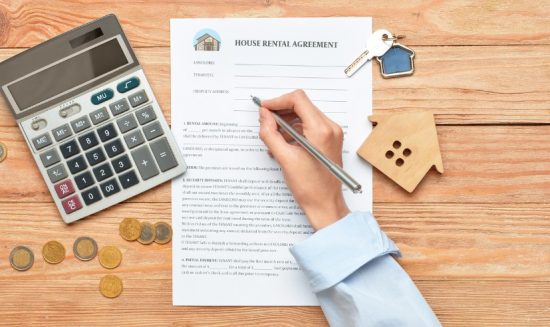
There are a few other important considerations to keep in mind when it comes to the Residential Tenancy Act in B.C. First, you can always contact the Residential Tenancy Branch for assistance if you have any questions or concerns about your rights or responsibilities as a tenant. Second, it’s important to remember that the Act does not apply to all residential tenancy situations in B.C.
For example, it does not apply to tenancies in mobile home parks, student residences, or commercial premises. If you’re thinking of ending your tenancy early, be sure to check out the section on “termination of tenancy” in the Act to see if you qualify for any of the grounds for early termination.
Conclusion
The Residential Tenancies Act in B.C. has been put into place to protect the rights of both landlords and tenants, ensuring that all parties are treated fairly. It’s important for everyone living in British Columbia to understand this Act, as it will help ensure that no one is taken advantage of when renting a property or entering into an agreement with a landlord.
By understanding what the RTA covers and how it works, you can be sure that your tenancy is fully protected and that you know exactly where you stand should any issues arise between yourself and your landlord.
FAQ – Residential Tenancy Act in B.C

Why is the Residential Tenancy Act important for B.C. tenants?
The Residential Tenancy Act is important for B.C. tenants because it provides protection from landlords who may try to take advantage of them. The Act sets out the rights and responsibilities of landlords and tenants and establishes a dispute resolution process. It also provides for penalties if either party breaches the terms of the tenancy agreement.
What is Section 47 of the Residential Tenancy Act BC?
Section 47 of the Residential Tenancy Act BC is the section that deals with notice to end tenancy for damage or improper conduct. This section allows a landlord to give a tenant 14 days’ notice to end their tenancy if the tenant has:
- Damaged the property beyond repair
- Caused extensive damage to the property
- Engaged in behaviour that has caused or is likely to cause serious harm to another person
- Engaged in behaviour that has caused or is likely to cause significant disruption to the quiet enjoyment of the property by other tenants
What is Section 29 of the Residential Tenancy Act BC?
Section 29 of the Residential Tenancy Act BC is the section that deals with deposits. A deposit is any money paid by a tenant to a landlord, other than rent, as security for the performance of the tenant’s obligations under a tenancy agreement. For example, a pet damage deposit or a key deposit would be considered a deposit under the Act.
The maximum amount that can be collected as a deposit is half a month’s rent. Deposits must be held in trust by the landlord and must be returned to the tenant at the end of the tenancy, less any damages that the tenant owes.
What is Section 24 of the Residential Tenancy Act BC?
Section 24 of the Residential Tenancy Act BC is the section that deals with rent increases. Specifically, Section 24 states that landlords are allowed to increase the amount of rent charged to tenants if they give the tenant at least three full months’ notice of the rent increase prior to its effective date. The amount of the increase must be reasonable and cannot be more than the guideline percentage established by the provincial government.
How much can my landlord increase my rent in B.C.?
In British Columbia, landlords can only increase rent once every 12 months and by a maximum of 2.9%. The increased amount must be fair and reasonable and not cause undue hardship to the tenant. If the landlord and tenant cannot agree on the increase amount, either party may apply to the Residential Tenancy Branch for an order setting the increase amount.




